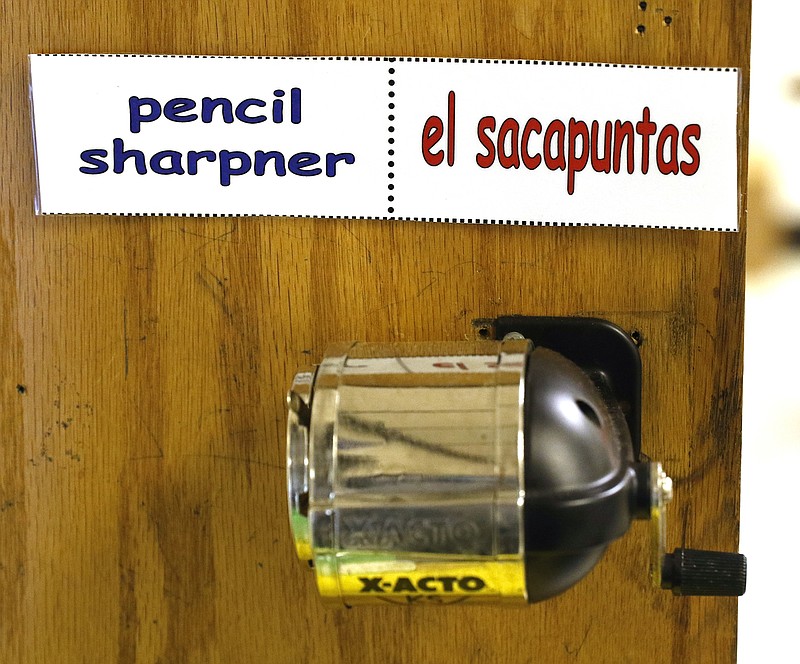State and local leaders discussed efforts to create opportunities for the English Language Learners community during a panel discussion Thursday night.
The event, held at Chattanooga State Community College, was aimed at spreading awareness of ELL students, and their growing populations in Hamilton County and across the state.
The college implemented a program called Bridges to Success this year. Its goal is to support local immigrants academically and socially, but Gladys Pineda-Loher said she hopes to see more initiatives in K-12 education across the district to help ELL students and their families so they're better prepared by the time they get to college.
"In reality, when [ELL] students reach college, they already have deficiencies," Pineda-Loher said in Spanish. "One of the things that can improve their outcome will be having a good start, from pre-K."
Pineda-Loher's goal is to keep students at the forefront of conversations, and she hopes the district recognizes the group's importance.
"They're a group that, because of their demographic, they need attention," she said. "In this moment, I don't think they're a priority."
Madison Dell, policy, planning and research analyst for the Tennessee Higher Education Commission, said the state will not achieve its Drive to 55 goals if leaders "don't reach out to historically underserved populations."
Drive to 55 is an initiative through which Gov. Bill Haslam set the lofty goal of boosting the percentage of working-age residents with post-secondary degrees or certificates to 55 percent by the year 2025.
"At THEC, obviously, we live and breathe the Drive to 55," Dell said. "That is everything that we do, and there's definitely not a caveat in there about ELL. We want this to include everybody."
"It's simply not attainable; the math doesn't work unless we include these students and give them opportunities to reach education," she added.
State Sen. Todd Gardenhire, R-Chattanooga, also was at the event. He talked about legislation he had been working on.
The bill stated if a student was born in the U.S., had good grades, passed a background check and is a DACA recipient, that student should be able to pay in-state tuition if there is a vacancy at the college or university.
Typically, DACA recipients have to pay out-of-state tuition in most states and are not allowed to receive federal financial aid, according to the U.S. Department of Education.
"I thought, 'Who in the world could be against that?'" Gardenhire said. "If there's a vacancy, we're not denying a Tennessee resident a spot in college, you're going to get B-average or better students - the best and the brightest."
Gardenhire noted that if a person does not have higher education, that person costs the state more tax money in benefits than is paid in.
"It just behooves us to make everybody we can get a college education and not stand in the way of anybody," he said, adding that 56 percent of Republicans in his district were against the bill he was proposing when he held a poll before introducing it.
"When you stand at Judgement Day, and you have to answer one question, and that questions is 'What did you do for the kids?'" Gardenhire said in an emotional speech. "I dare somebody to say, 'Oh, hey. We sent those people back to Mexico.'"
"That's what motivates me to go on this journey," he added. " It's time that we did the right thing and get all the kids we can educated, especially if they want to be educated."
Contact staff writer Rosana Hughes at rhughes@timesfreepress.com or 423-757-6327. Follow her on Twitter @HughesRosana.
